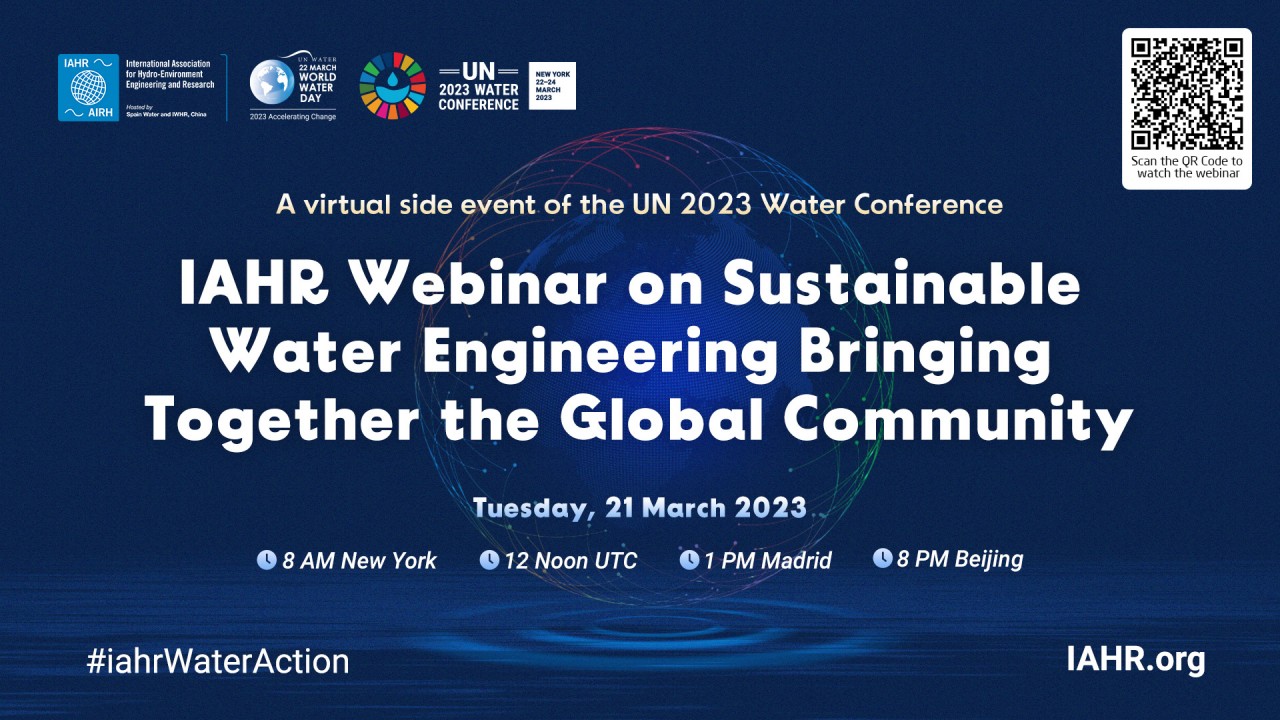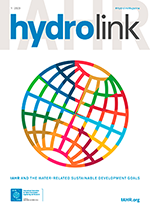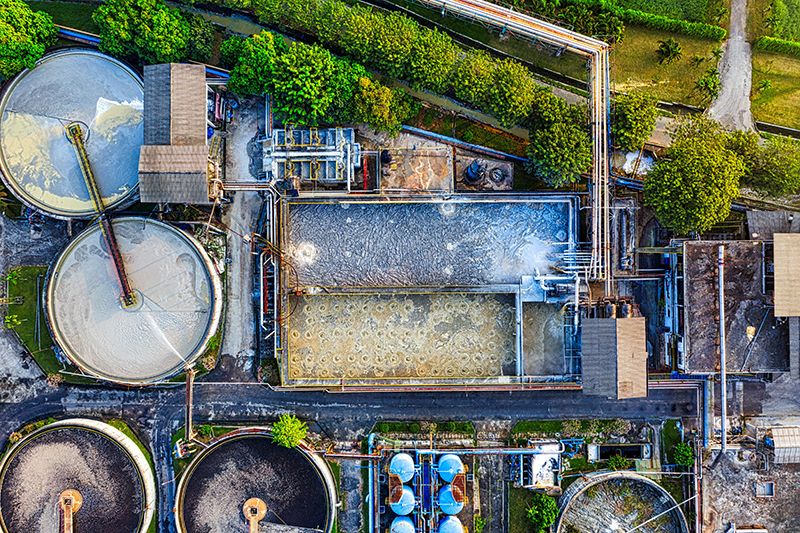IAHR at the UN 2023 Water Conference: Sustainable water engineering bringing together the global community
Engineering is one of the key elements of sustainable development. It underpins and impacts almost every aspect of our policy, financial, physical, social and environmental solutions. As the Sustainable Development Goals (SDG) are implemented, water infrastructure, technologies and innovations at all levels will be critical. It is estimated that over the period 2015-2030, most countries will need to allocate 1-2 per cent of their GDP to water infrastructure.
In addressing today’s challenges, water engineering has evolved since the 1977 UN Conference on Water to become green. It addresses problems in a holistic way and is a multidisciplinary endeavour, understanding and responding to environmental and societal needs, with deference for human rights, leverages critical grey infrastructure, sustains economic growth, includes nature-based solutions, and makes the most of ecosystem services.
Green engineering is a significant component of the five SDG6 accelerators that are required to bring nations back on track by i) bringing innovation to reality, ii) generating and using information and data for positive water outcomes; iii) increasing capacity development; iv) mobilizing and utilizing financing for the most effective multi-purpose outcomes; and v) providing options and adhering to good governance.
 In the framework of the UN 2023 Conference on Water, IAHR organised on 21 March 2023 a virtual side-event on how Sustainable Water Engineering brings the global community together; in partnership with the OECD, IWHR, DHI Group, Spain Water, ICOLD and the IWRA. The event brought together the perspectives of different stakeholders on the theme of sustainable engineering.
In the framework of the UN 2023 Conference on Water, IAHR organised on 21 March 2023 a virtual side-event on how Sustainable Water Engineering brings the global community together; in partnership with the OECD, IWHR, DHI Group, Spain Water, ICOLD and the IWRA. The event brought together the perspectives of different stakeholders on the theme of sustainable engineering.
A systems approach is necessary to leverage the interconnectivity of engineering
It is important to understand and leverage the connections between the physical assets and the actors involved at different levels of water systems. Using a systems approach for this purpose can maximize the benefits that can be derived from such connections and networks. An example is development based on innovation, coordination, green solutions, openness and shared benefits, and follows the principles of prioritizing saving water, balancing its allocation, managing it using a systems approach and for this purpose harnessing both public and private forces. Both the physical and the social processes that affect the water cycle must be considered.
Sustainable water engineering is based on respect for nature, natural resources and the environment, integrating natural and man-made assets and properly operating and regulating water-related systems, but also human activities, such as land use, urbanization and rural development.
It is essential to understand the economic value of green solutions and reshape financing mechanisms accordingly
Today, there is a gap between what is spent and the investments needed to achieve SDG6 and other water-related SDGs. It is particularly so when it comes to green solutions. Financing mechanisms remain overwhelmingly oriented towards grey infrastructure projects. To overcome this bias we must find ways to quantify and monetize the benefits of nature-based solutions and other green infrastructure projects.
It is important to move beyond valuing only traditional infrastructure projects and be able to demonstrate the value of ecosystem services. Besides developing the methods and tools to do so, we also need the appropriate enabling environment (policies, institutional structures and regulatory settings).
Effective interchange between science, innovation, policy and governance is essential
Reaching sustainability, a form of intergenerational ethics, requires continuous interaction between Science, Practice, Policy and Governance. An effective science-policy interface is a critical element for succeeding in achieving the SDGs. Policies and their implementation must be informed by and take advantage of new scientific research and technological innovations.
Digital technologies can help assessing and accelerating progress towards the water-related SDGs. It is important that the use of all such emerging technologies is preceded by adequate capacity development.
 Hydrolink Magazine: Special issue on the contributions from the engineering community to the water-related Sustainable Development Goals
Hydrolink Magazine: Special issue on the contributions from the engineering community to the water-related Sustainable Development Goals
The March issue of Hydrolink, IAHR’s primary magazine, focuses on the contributions from the engineering community to the water-related Sustainable Development Goals (SDGs).
It includes articles from four IAHR Technical Committees (hydraulic structures, flood risk management, ecohydraulics, water resources management) discussing how their work supports the SDGs.
Call for hydro-environment institutes
Call for hydro-environment institutes to participate in the meeting to be held in the frame of the 40th IAHR World Congress in Vienna, Austria, on 21 August 2023.
Hydro-environment engineering and research institutes accelerate knowledge and solutions to address the most pressing water-related issues. As we move through 2023, which is the mid-term review of the 15-year SDG implementation path, it is important to reflect on the achievements to date and to look at the path ahead, with particular focus on the contributions of hydro-environment engineering and research institutes: What are the latest trends to achieve these goals with respect to research, solutions and innovations in the hydro-environment community? How are and how should the major institutes of the world contribute to the SDGs? What pathways for the coming years?
This meeting brings together the world’s hydro-environment engineering and research institutes, to share experiences, highlight the latest innovations and trends, and build partnerships.
The event is a must, for any individual or organisation wishing to gain a more comprehensive overview of how the hydro-environment institutes of the world are contributing to the SDGs, as well as what work priorities and research agendas they envisage in the coming years.
